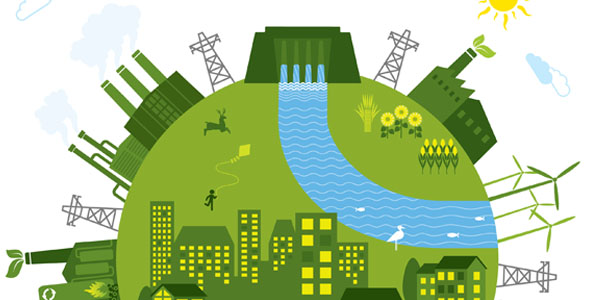Introduction To Sustainable Development and Development Planning
Introduction
Africa is often inaccurately and incomprehensively represented in foreign, and even African, media.
However, it is sometimes evident that such representations are ideologically tinged, often fitting into the media frames that such foreign journalism has, wittingly and unwittingly, evolved over time. As a result, the reporting of the continent is often formulaic, risking a dangerous cultural homogenization of a continent that is in reality geo-culturally multifaceted and fascinating in many ways.
As the Millennium Development Goals (MDGs) came under review in 2015, the world had a new opportunity for articulating clear goals and targets for post- 2015 Sustainable Development Goals (SDGs). The SDGs will shape much that happens in international and national policy frameworks over the coming years, and be a reference point for governments, foundations, development banks, companies, NGOs, academics and more.
The SDGs cover social, economic and environmental realms, and emphasize sustainability in all three realms. They are designed to be relevant to every country, whether developing or developed, highlighting room for progress everywhere.
This prompts an updated assessment of the capability of the media in competently informing the public on the need for these global goals and critically analyzing the progress and process of achieving these goals.
In correcting ecological imbalances and responding appropriately to climate change crises, larger attitudinal changes are required to ensure access to food, water, energy, education, health, and other areas where mal-adaptations exist. Often, the environmental angle is lost while reporting domestic developmental concerns, resulting in misdirected public perception.
This program aims to fill the knowledge gap, expose journalists to the body of socio-scientific research they can use as foundational tools and support them in creating more enduring, wholesome narratives, while tackling interdisciplinary threads of public discourse involving sustainability, governance and economic development.
It with this in mind that the this professional skills development program developed by Strathmore Business School and Kenya Commercial Bank will train journalists on Kenya’s Development Planning Journey leading up to the 2015 Sustainable Development Goals and the institutions, mechanisms and process that the Government of Kenya will use in the implementation of the objectives of these goals.
The program will look at social development issues mainly poverty, inequality and the national plans that have been in place since the colonial period, subsequent governments and today.
It is critical for the journalists who are mostly young adults who were born in the mid-eighties or early nineties to understand how Kenya as a nation has evolved and provide a possible explanation for why Kenyan society is where it is today.
Project Objectives
Considered as a whole, then, the key objectives of this four-day program are:
- To root students in the Kenyan historical context of development planning;
- To engender a self-reflective journalistic ethical decision-making approach that is grounded in a critical appreciation of the social and historical context in which development decisions are arrived at e.g. Vision 2030, MDG’s and SDG’s;
- To promote a critical understanding of the development contexts and priorities that African journalists must grapple with; and
- To develop the critical thinking and analysis skills of journalists in assessing the theories, ideas and assumptions that drive national and international development practice.








